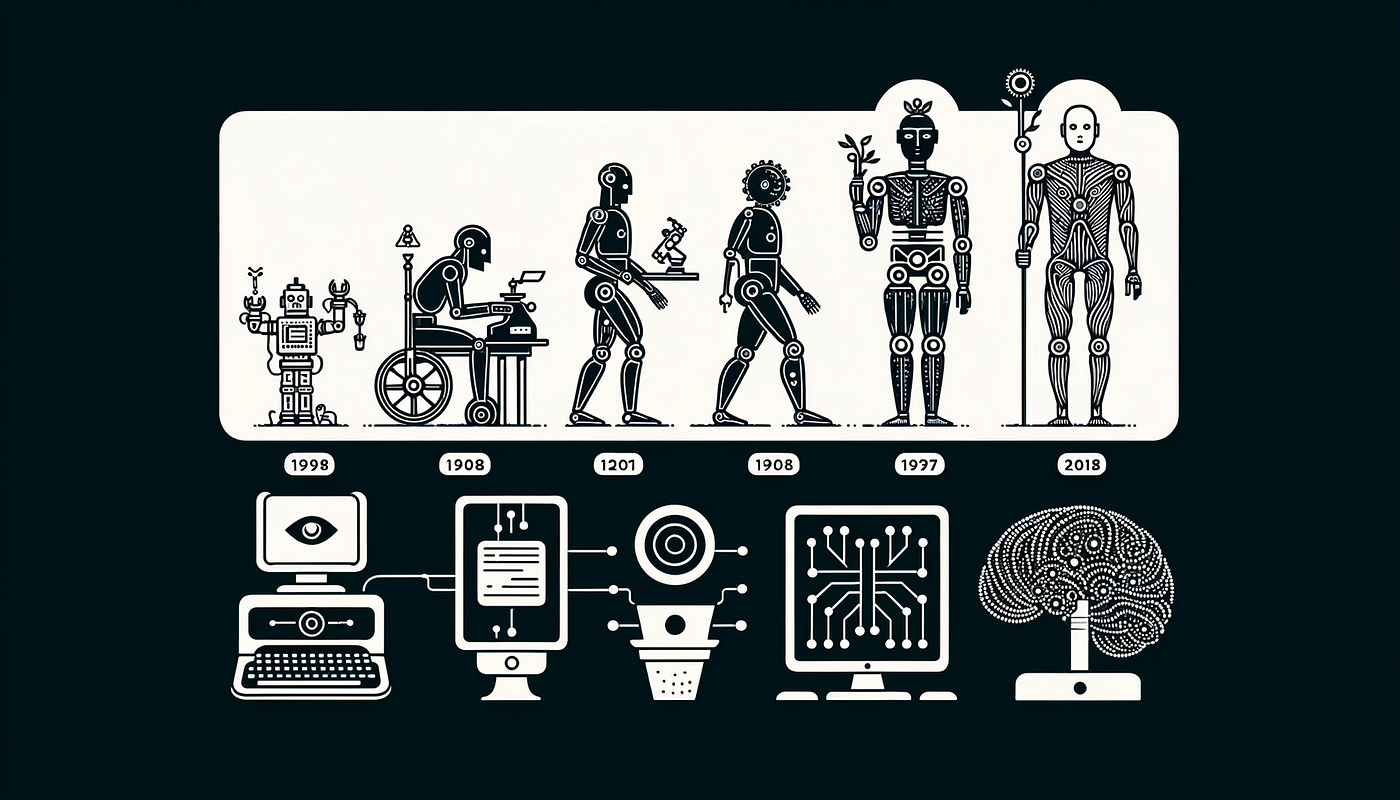Introduction to AI in Healthcare
Artificial intelligence (AI) within the healthcare sector is revolutionizing how patient care and hospital functions are handled by introducing tools that enhance diagnostic accuracy and treatment personalization while also enabling the prediction of patient results through the utilization of machine learning algorithms and natural language processing techniques.
In the healthcare sector, where expenses are increasing and medical workers are under pressure with the demand for precise and prompt information rising steadily, artificial intelligence is being seen as a viable remedy to the ongoing issues at hand by simplifying administrative tasks and improving medical decision making processes to enable better proactive patient care management within healthcare organizations.
The History of Artificial Intelligence
The Role of AI in Modern Medicine
AI in Diagnostics
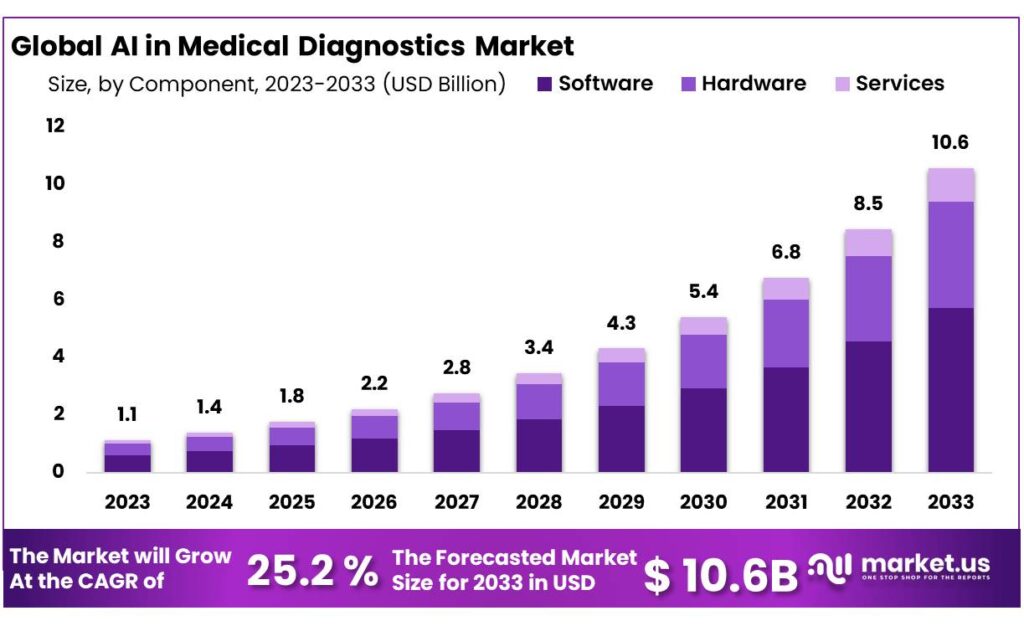
AI has made contributions to the field of healthcare through its application in diagnostic processes. A variety of information such as electronic health records (EHR) laboratory findings and medical imaging, is scrutinized by AI algorithms to identify potential disease indicators. Deep learning-based AI systems have demonstrated success in accurately diagnosing ailments such as cancer, cardiovascular conditions, and diabetic retinopathy.
AI in Treatment Planning
Artificial intelligence is also causing a stir in the field of treatment planning by examining records and genetic information alongside real-time patient observations to propose tailored treatment strategies for individuals seeking medical care.In one instance of its application in cancer treatment planning, AI tools can offer advice on the optimal chemotherapy regimens suited to each patient’s genetic composition.
Machine Learning and Predictive Analytics in Healthcare
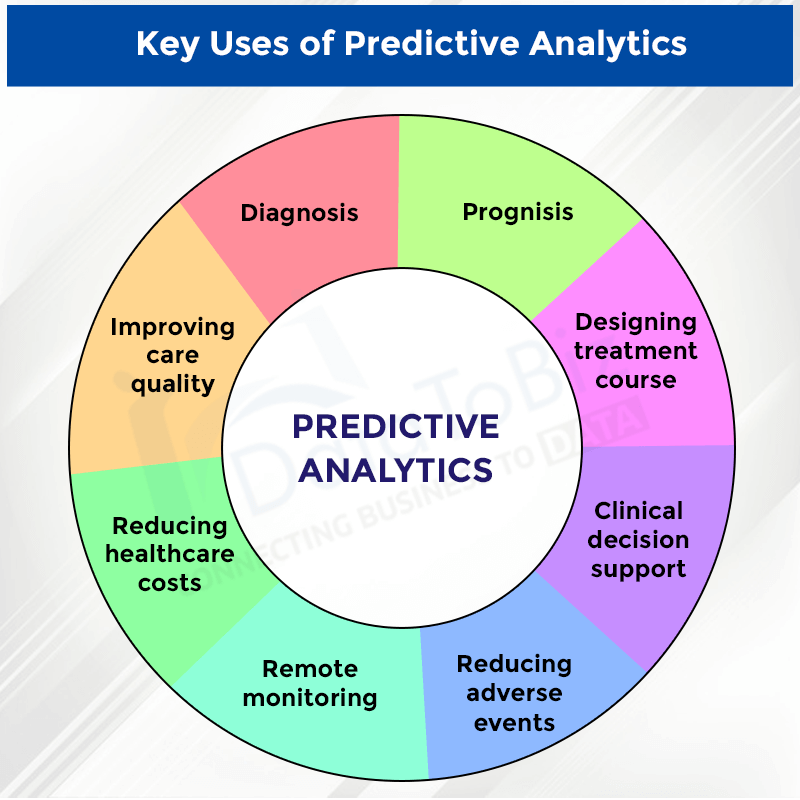
Machine learning is an important component in AI, which employs predictive analytics. ML algorithms study the previously available data for predicting a patient’s outcome and the progress of the disease. Therefore, this ability helps in rapid identification of high-risk patients by hospitals, making early medical interventions and preventive measures possible to save lives and reduce expenditure on health.
AI-powered predictive analytics can also be used to forecast hospital admission rates, enabling institutions to plan staff and other resource utilization for the best possible care.
Robotics and AI in Surgery

AI-powered robotics can make the process of surgery much easier compared to previous times, as this decreases the possibility of human error, thereby enhancing precision. The robotic surgical systems, such as the da Vinci Surgical System, use AI algorithms that assist surgeons in complex procedures by offering them better accuracy and control.
Other uses are found in minimally invasive surgical procedures where robots perform tasks requiring precision, minimizing scars, recovery time, and complications.
Natural Language Processing (NLP) in Healthcare
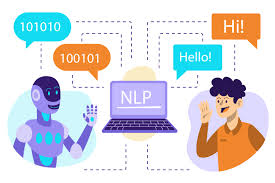
NLP is an AI technique that enables computers to understand and interpret human language. In health information, it is applied to extract relevant data in unstructured forms, such as doctor’s notes, clinical reports, and EHRs.
By analyzing such information, the AI systems will pinpoint the key medical insight to help physicians arrive at better decisions. It also involves voice-activated virtual assistants with NLP, thereby simplifying the effort to put in and access patient information by healthcare professionals.
AI for Medical Imaging
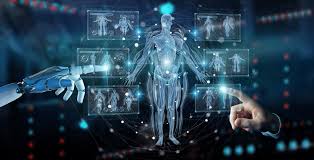
It has revolutionized medical imaging to the extent that abnormalities in X-rays, MRIs, and CT scans can now be detected much more quickly and accurately. Various AI algorithms are designed to detect image features with potential diseases, such as cancer or fractures.
Examples include AI systems diagnosing breast cancer from mammograms with higher accuracy and at an earlier stage than that of human radiologists, thus allowing treatment earlier.
AI and Drug Discovery
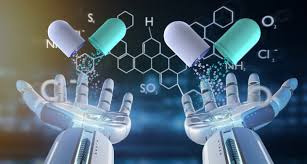
AI is hastening the normally year-long and multimillion-dollar process of drug discovery. Machine learning models can go through chemical compounds and predict which one may be effective against any particular disease. Technology enables pharmaceutical companies to identify promising drug candidates faster to reduce both the cost and time of bringing new drugs to market.
AI can also be used to personalize medications, tailoring medical treatments more effectively to patient’s specific genetic profiles and medical conditions.
AI-Powered Virtual Health Assistants

AI-powered virtual health assistants also find an increasing application in the field of patient and healthcare provider support. Their functional spectrum is great, from appointment scheduling, answers to different medical questions, to reminders about taking one’s medication. For healthcare professionals, AI assistants will help in easing the burden associated with administrative tasks, thus freeing up time for being with the patients.
It is used for patient triaging again, initial diagnosis advice on when to seek attention, and lessening the load in the casualty ward through AI-powered chatbots.
Wearable AI Technology in Healthcare
Wearable devices integrated with AI are changing the dimensions of health monitoring for both the patient and healthcare provider. Smartwatches, fitness trackers, and wearable ECG monitors track vital signs related to heart rate, blood pressure, and activity levels in real time. The AI algorithms, in turn, interpret the data to draw inferences about patients’ health and often predict health problems before they become acute.
With AI-powered wearables, irregular heart rhythms can be detected to enable early diagnosis and treatment of conditions like atrial fibrillation-those that most likely prevent strokes.
Ethical Considerations of AI in Healthcare
While AI carries a lot of benefits with it, there are important ethical issues raised at the same time. Such an issue is the one of data privacy: AI needs access to sensitive patient information. Keeping this data in a safe place and using the data ethically is very crucial for patients’ trust in the treatment.
Other concerns include those related to bias in AI algorithms, given that biased data create biased outcomes, which may occur in the treatment of healthcare; for instance, an AI tool trained predominantly on one demographic group may not be as effective or helpful with patients from other groups.
Challenges of Implementing AI in Healthcare
However, AI has a lot of potential in health care, but challenges must be conquered. Probably the major barrier to adopting the use of AI in healthcare is the integration of AI tools into existing healthcare systems. Most hospitals and clinics continue to hang on to their old technologies, thereby making the adaptation to new AI-driven solutions not so easy.
What’s more, AI tools need to educate a health workforce how to use them best. Physicians and staff have to understand what AI-generated data is saying and how to incorporate it into clinical workflows.
AI in Healthcare Operations and Management
Besides the clinical use of AI for patient treatment, the technology has extended into optimizing healthcare operations. Through AI systems managing hospital logistics, such as scheduling, billing, and inventory, the process can be streamlined. For instance, AI can predict patient flow into the hospital and aid managers in the proper allocation of resources, thus minimizing wait times and improving patient satisfaction.
AI is also enabling care organizations to manage the financial aspects of care in the identification of billing errors and avoidance of insurance fraud.
The Future of AI in Healthcare
The future of AI in healthcare is very bright. With every advancing day, as technology advances, not only will the use of AI get integrated into various sectors but also spread at each possible aspect of healthcare, from personalized medicine to global health management. Innovations such as AI-powered genetic therapies, remote monitoring, and telemedicine will further enhance patient care and make healthcare more accessible.
But for AI to realize its full potential in healthcare, collaboration will be required among healthcare providers, technology companies, and regulatory bodies. In that future setting, the use of AI needs to be fully ethical and responsible.
Real-World Examples of AI in Healthcare
The transformative power of AI in health has been conveyed variably by several real examples:
1. IBM Watson for Oncology: At IBM, the supercomputer Watson analyzes medical literature and patient data to help oncologists develop personalized cancer treatment plans.
2. AI for Eye Disease: Google DeepMind has created an AI capable of discerning more than 50 diseases of the eye from optical scans with the same or greater level of precision as leading ophthalmologists.
3. PathAI: It uses the power of machine learning to try and improve the accuracy of pathology diagnosis, hence helping in rapid and proper diagnosis of diseases like cancer.
Conclusion: The Path Forward for AI in Healthcare
AI in medicine promises to transform the industry by improving patient outcomes, diagnostic accuracy, and operational efficiency. While the challenges to its implementation are palpable, so are the benefits. With the correct ethical framework and collaboration of all stakeholders, AI will continue to advance the future of medicine.AI is also playing an important role in education. Empowering Education: The Role of AI in Enhancing Educational Tools and Resources
__________________________________________
FAQs
- What is AI in health?
- AI in health is the application of various artificial intelligence technologies, including machine learning and natural language processing, in a way that allows doctor-patient-focused improvement in diagnosis, treatment planning, and operational efficiencies in settings related to healthcare.
- How does AI improve diagnosis in healthcare? AI improves diagnosis by processing large amounts of patient information, underlines patterns that may indicate disease, and often provides extremely accurate diagnoses with speed beyond human physicians.
- What are some of the ethical challenges that arise from the use of AI in healthcare? Some of the major ethical challenges in health care involve data privacy, algorithmic bias, and finally, equitable access to AI-powered health solutions.
- How does AI apply to drug discovery? AI accelerates the process of drug discovery through the analysis of chemical compounds.



